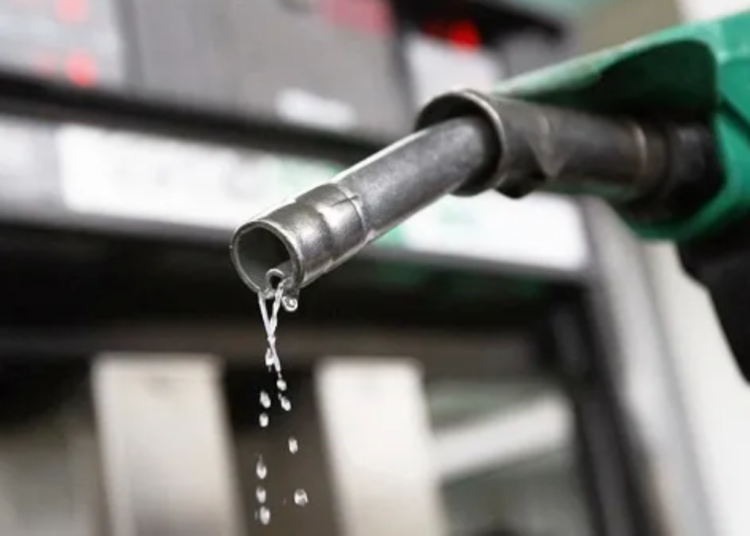Stakeholders in the oil sector have canvassed measures the federal government should implement to reduce the impact of the total removal of fuel subsidy on Nigerians.
In separate interactions with LEADERSHIP Sunday, the industry players lamented that Nigerians, especially those below the poverty level, are now forced to further readjust their deplorable lifestyle following the consistent shock thrown out by persistent upward adjustment in the pump price of Premium Motor Spirit (PMS) also called petrol.
The Nigerian National Petroleum Company Limited (NNPCL) had on Wednesday increased the pump price of petrol prompting other marketers to also adjust their pump prices.
The latest is the fourth time since President Bola Tinubu’s administration came into office in May last year.
The price is spiked by 15 per cent to N1,030 per litre in Abuja and N998 in Lagos as the NNPCL backed out as a middleman in the petroleum industry, setting the stage for direct price negotiations between marketers and the refinery.
The continuous increase in prices is attributed to market forces and financial constraints faced by the NNPCL.
In his reaction, the chief executive officer of the Centre for the Promotion of Private Enterprises (CPPE), Dr Muda Yusuf, said the latest increase in the price of petrol is regrettably ill-timed and does not reckon with the prevailing difficult economic conditions.
He said social, economic and political considerations should be taken into account in policymaking and that commercial considerations should not completely override these considerations.
According to him, there is always a place for political economy in the interest of the vulnerable segments of society, adding that the Nigerian economy is not ripe for full-blown deregulation and market principles on all fronts.
In his opinion, the social cost of such policy choices is typically very high, adding that this is an economy with very fragile social safety nets.
“Over 100 million people are wallowing in various variants of poverty. There is also an issue of policy sequencing. The present administration has presented an Economic Stabilisation Bill to the National Assembly.
“The bill is expected to bring some relief to the citizens and businesses. It would have been better to allow the proposed mitigating measures to be activated and gain traction before coming up with the petrol price hike.
“What the economy needs at this time are measures to ease the current economic and social challenges; not policies that would aggravate them,” he said.
Yusuf added that it is desirable at this time to urgently cut import duties and taxes by a minimum of 25 per cent on all industrial raw materials, passenger buses of 18 seaters and above and cars of 2000cc engine capacity and below.
“The customs duty exchange rate should be fixed at a maximum of N1,000 per dollar to reduce current prohibitive cost of imports,” he suggested.
He also added that relevant legislation should be amended to that effect without prejudice to the fiscal policy measures contained in the Economic Stabilisation Plan.
He advised that the government must be ready to trade off some revenue in the current situation and there is a need to seek to achieve the maximisation of welfare function for citizens and productivity function for businesses.
Yusuf postulated that government should not be too fixated on revenue maximisation.
In his view, the founder of Cowry Asset Management Limited, Mr Johnson Chukwu, said the adjustment is in line with the provisions of the Petroleum Industry Act (PIA) which is clear on removal of subsidy.
Chukwu said the deregulation of the downstream industry would see movement of prices in consistent manner which is determined by the price of crude oil.
He said whether crude is sold in Naira to local refineries, it would certainly reflect the global market value which will also reflect in the price of refined petroleum products.
Chukwu, however, said what government should do to cushion the effect on citizens is to invest in critical infrastructure across all sectors of the economy.
“The subsidy removal will freeze the burden on government,” he said, adding that it is the responsibility of the authorities to build a productive economy that would boost income of citizens as the cost of goods and services would continue to increase with the price adjustment.
He advised the government to deploy resources towards building infrastructure in road transportation, sea ports, energy and water transportation among others.
A top legal luminary who wouldn’t want to be named said, the government failed in the sudden removal of the subsidy without conducting a thorough study on issues that such action could throw up.
“There seems to be inadequate preparedness on the part of government to intervene in areas where the policy shift could create problems for citizens and that is why there is public outcry,” he said.
On the issue of subsidy, the legal expert said it not illegal as subsidy exists in most countries of the world. “What we are experiencing is corruption which has caused widespread economic problems for government in the implementation of the policy. People hide under the policy to steal money and divert resources, but if it was properly managed, the benefits would be clearly accounted for.”
He also traced similar lack of transparency in the management of public enterprises leading to the privatisation of key government entities. According to him, in the Scandinavian countries, the public sector thrives because there are checks and balances.
Last Monday, the NNPCL announced plans to end its exclusive purchase agreement with Dangote Refinery, a move which signaled the end of subsidy regime to also allow other marketers to have direct contact with the refinery for product purchases.
The current adjustment has seen petrol now being sold as much as N1,030 for a litre of petrol at NNPC filling stations with independent marketers selling at higher prices, some as much as N1,200.
Following President Tinubu’s statement that “subsidy is gone,” the petroleum industry was thrown into a frenzy which automatically caused an increase of petrol across the country.
The government had maintained that the continuous payment of over N400 billion monthly for subsidy was no longer feasible.
The NNPCL issued an official statement in May 2023 following the president’s statement raising fuel prices from N195 per litre to between N448 and N557 per litre across the country indicating a 185.64 per cent increment.
The second adjustment came later in June 2023 as prices of the product rose again from N557 to N617 indicating an increase of 10.77 per cent.
According to the NNPCL, the increment was due to market forces.
The increment continued in September 2024 as petrol stations again hiked pump prices by 45.38 per cent from N617 to N897 per litre.
The increment followed an announcement by the NNPCL that the company was facing severe financial constraints, including high debt to petrol suppliers.
A statement signed by the chief corporate communications officer, Olufemi Soneye said, “The financial strain has placed considerable pressure on the company and poses a threat to the sustainability of fuel supply.”
Also, following the decision of the NNPCL to quit its middleman role between marketers and the Dangote Refinery, the NNPCL and other marketers adjusted pump prices at their stations to reflect the actual cost of petrol at the refinery.
Various NNCPL outlets nationwide adjusted their pump prices increasing the cost by 15 per cent to N1,030 per litre while other marketers across the country have also adjusted their prices to reflect the current market realities.
As the NNPC exits the market the middleman-role, the implication is that the national oil company will stop taking care of the price gap between the refinery’s price and the selling price to retailers.
The NNPCL had claimed in September that it purchased petrol at N898.78 per litre from the Dangote Refinery while it sold to marketers at the rate of N765.99 per litre.
With this arrangement, the NNPC bore the burden of paying off almost N133 for each litre of petrol purchased.
Industry operators have projected prices in the Northeast to range between N1,060 and N1,070 while in the South-South, prices are between N1,055 and N1,075 per litre for the product.
The increment will see customers in Lagos pay N998 per litre, Abuja pump price is N1,030 per litre and other Southwest states will pay N1,025 per litre of PMS while customers in the Southeast will pay N1,045 per litre.
We’ve got the edge. Get real-time reports, breaking scoops, and exclusive angles delivered straight to your phone. Don’t settle for stale news. Join LEADERSHIP NEWS on WhatsApp for 24/7 updates →
Join Our WhatsApp Channel










